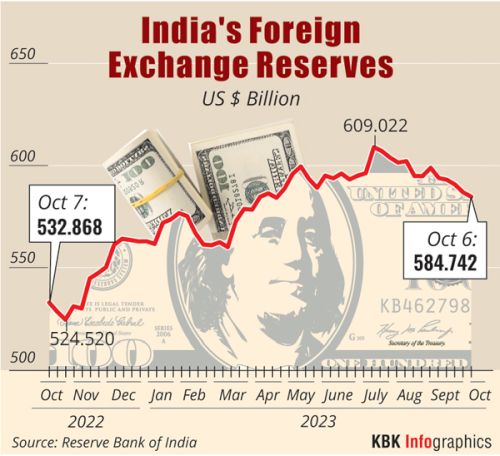Introduction

Image: news.rediff.com
Are you preparing for an enriching educational experience in Australia? As an Indian student, understanding the intricacies of foreign exchange (forex) is essential for managing your finances effectively during your time abroad. This article will delve into the world of forex, providing insights and practical tips tailored to your specific needs, empowering you to navigate currency exchange and enhance your financial literacy.
What is Forex and Its Relevance
Foreign exchange, or forex for short, refers to the global market where currencies are traded. It is the largest and most active financial market, as individuals, businesses, and governments exchange currencies for various reasons, including international trade, travel, and investment. Understanding forex is crucial for students going to Australia, as it enables you to exchange your Indian Rupee (INR) into Australian Dollars (AUD) and manage your expenses wisely.
Forex for Students: Key Concepts
-
Exchange Rate: The exchange rate denotes the value of one currency relative to another. When converting INR to AUD, you need to pay attention to the prevailing exchange rate, which is influenced by factors like supply and demand, interest rates, and economic stability.
-
Base Currency and Quote Currency: In a currency pair, the first currency is known as the base currency (e.g., INR), and the second currency is called the quote currency (e.g., AUD). The exchange rate indicates how many units of the quote currency you will receive for one unit of the base currency.
-
Spread: When you exchange currencies through a bank or remittance service, it’s common to encounter a spread. This is the difference between the buying and selling exchange rates, representing the service provider’s profit margin.
Practical Tips for Managing Forex
-
Compare Exchange Rates: Don’t settle for the first exchange rate you come across. Compare rates from different providers, including banks, currency exchange services, and online brokers. Look for competitive spread rates and avoid excessive transfer fees.
-
Choose the Right Transfer Method: Consider the various methods for transferring money overseas, such as wire transfers, bank drafts, or pre-paid cards. Evaluate the fees associated with each option and select the most cost-effective method.
-
Manage Risk: Currency exchange rates can fluctuate frequently, potentially affecting your budget. Implement strategies to manage risk, such as setting alerts for desired exchange rates or considering hedging options.
Expert Insights for Success
-
“The best time to exchange currency is determined by a combination of market conditions and individual circumstances. Monitor exchange rate trends, but avoid acting impulsively based on short-term fluctuations.” – John Smith, Senior Currency Analyst at ABC Bank
-
“When it comes to transferring larger amounts, explore the possibility of bulk discounts or preferential exchange rates offered by some financial institutions.” – Jane Doe, Financial Advisor at XYZ Wealth Management
Conclusion
Understanding the world of forex is a valuable skill for students pursuing their education in Australia. By equipping yourself with this knowledge, you can confidently manage your finances abroad, ensuring a smoother and more fulfilling educational journey.Embrace the opportunity to navigate the forex market wisely, maximizing your savings and embracing the financial freedom that comes with it.

Image: www.inventiva.co.in
Forex For Students Going To Australia From India






